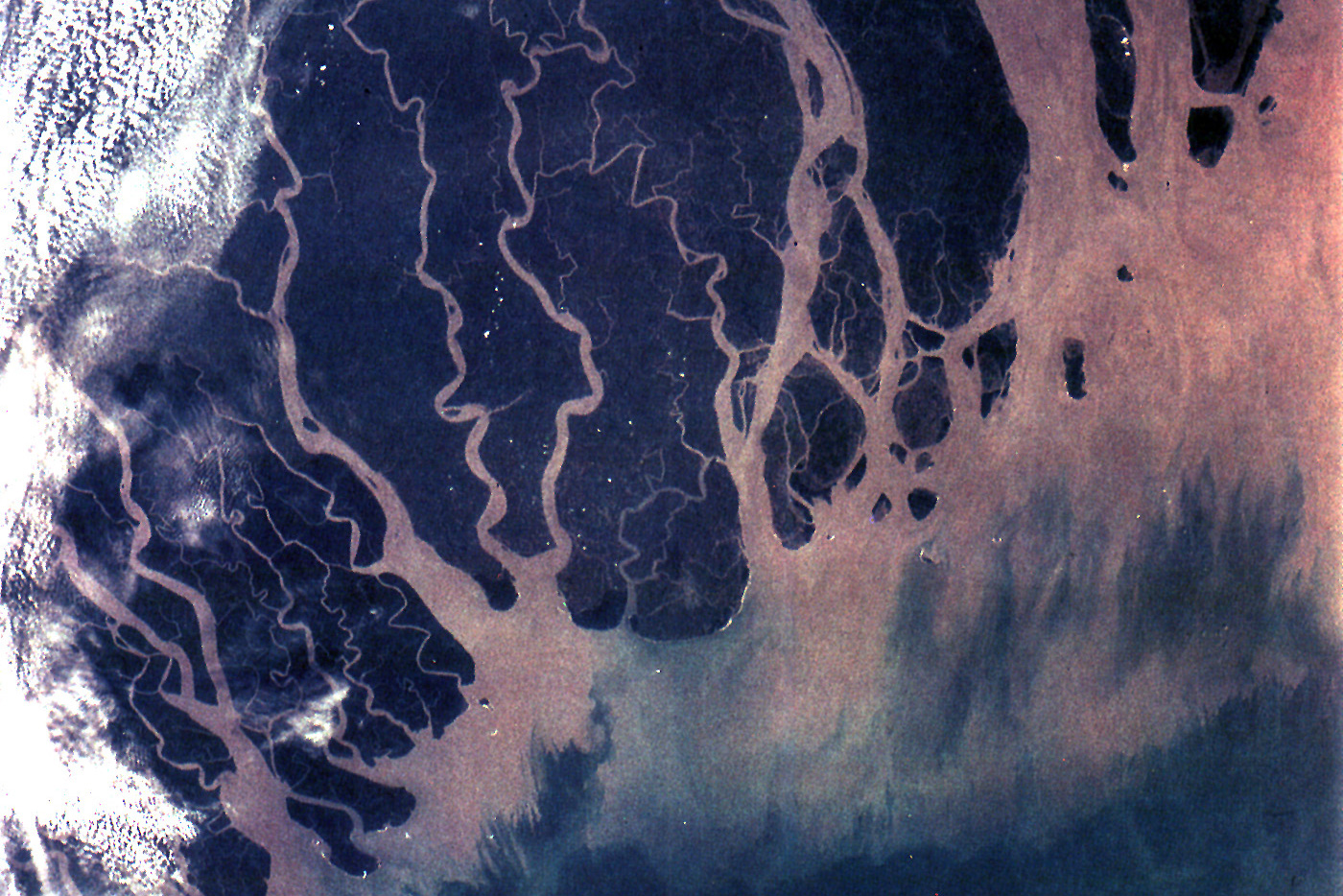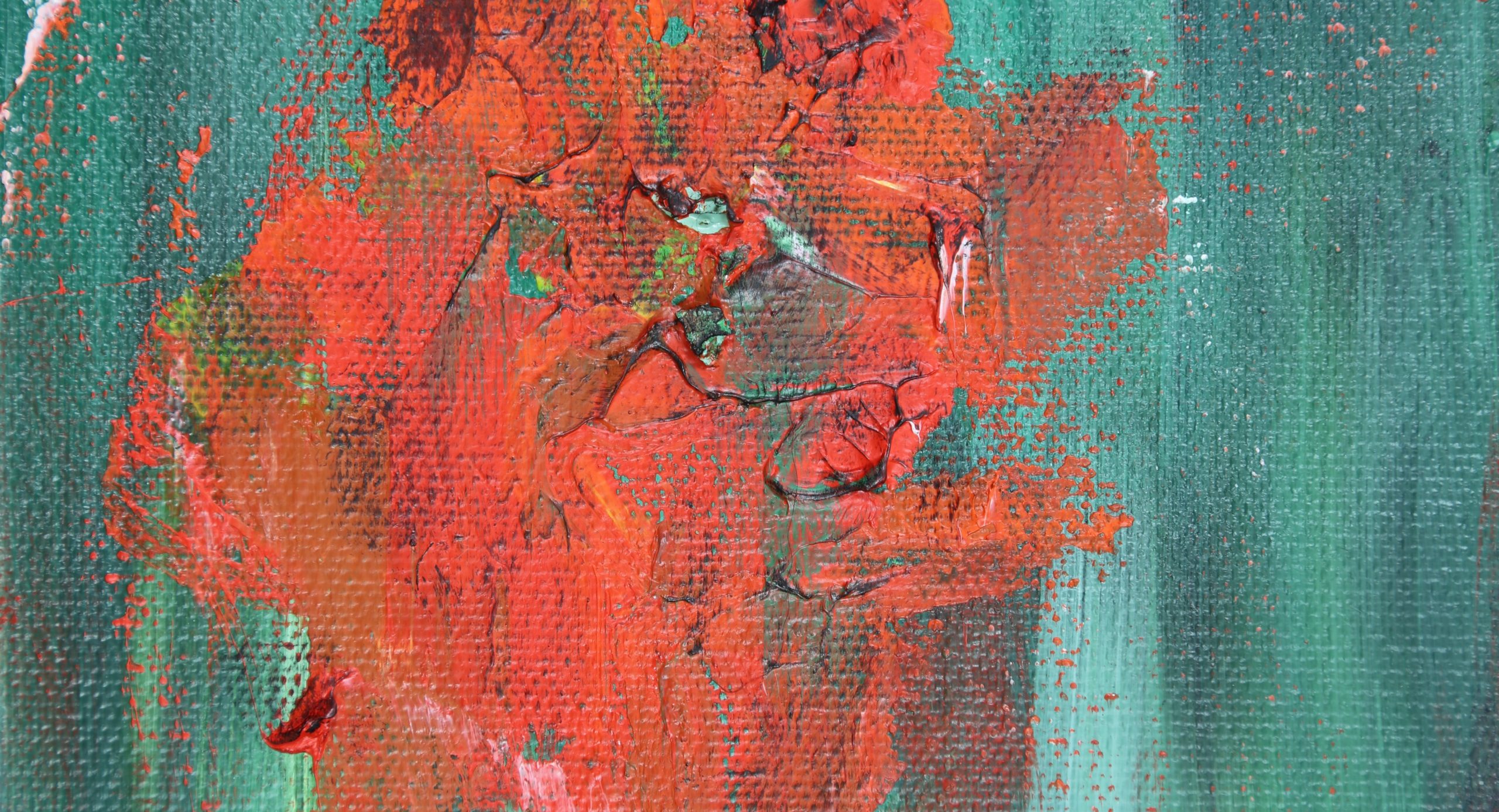Some weeks ago, when the summer heat still lay over the city, my wife and I cycled to our favorite restaurant, which happens to be in Red Hook, a charming nautical enclave in Brooklyn. We lingered at Hoek, savoring the pizza, almost until sunset before making our way to the ferry that would take us back to Manhattan. We were early, so we spent a few minutes looking out over the water. And then—there she was.
I’ve never been to Ellis Island, but I cannot imagine a more magnificent view of Lady Liberty than from the Brooklyn waterfront, the sun setting the sky ablaze, crepuscular rays reaching down through the clouds as if to touch everything that lay below them and say “This, too, is good.” We stayed a while, took indifferent photos through the metal barrier, bathed ourselves in the late-evening light.
I felt somewhat embarrassed when I became conscious of my own swelling sentiment, the way I do when I rewatch episodes of The West Wing. What good does this enormous copper-green edifice do for frightened migrants crossing the Rio Grande or for young mothers in Detroit or indeed for any of the thousands of New Yorkers who see her from the Financial District and the Staten Island Ferry and the Brooklyn waterfront each day? She lies inert, on a museum island where these days no one gets a new name and no one gets a new life, but only the kind of tour whose price is worth it just to tell other people you’ve done it.
* * *
Twenty-four years ago, on the night before Halloween, which I had never before witnessed, my family arrived in the United States. I had until then grown up mainly in Jamaica, where my parents had intended to stay a few years at most before returning to India, but in a familiar-enough story, the lure of economic opportunity and the prospect of world-class educations for their children led them to emigrate a second time. We were hardly members of Emma Lazarus’s huddled masses, but it is also true that we arrived with very little. Still, my father’s career in technology promised advancement, especially in those heady days of the late ’90s.
We moved to Texas, where the climate seemed hospitable and the cost of living was manageable. I do not know if my parents could have foreseen that they would still be living in Texas almost a quarter-century later, but I doubt it. I vividly remember driving down from Dallas to East Texas and feeling, in my stomach, that the sky was impossibly large here. I still feel that way on the odd occasions that I visit my parents in Houston and drive out into the country.
I certainly could not have foreseen falling in love with this strange and—at times—harsh place. We entered the long process of becoming, first, permanent residents, and then, at the height of the Iraq War, citizens. I nearly wept when I took the oath. It was strange to discover that very few native-born citizens—save those in the military—had ever sworn to serve and protect the country, as I just had.
I was raised with a healthy skepticism for American culture and developed, as I grew up, an even deeper skepticism of the American enterprise. It wasn’t just the folly of the ongoing wars in the Middle East, it wasn’t just the self-forgetting history of imperialism and colonialism, it wasn’t just the consumerism and individualism that seemed the only genuinely shared values of the polity—it was also the axiom that to be American was to be better than anything else. And I was reminded, often enough, that even as the holder of an American passport and, eventually, the possessor of an American accent, I would always be, in the eyes of many people, something else.
* * *
Still, fall in love with the country I did. Leaving for two years to study in England did much to foster these feelings. It helped that the Bush era was over, when suddenly there seemed more to be proud of, however illusory that may have been. But more important was my discovery that most English people had little love for and even less pride in their nation. This wasn’t the ordinary disappointment with politics and corruption that I knew so well from the United States—or indeed from India, where some of my extended family still lives. Rather it was a withdrawal from the project of the nation as such, a rejection of any promise held out by the “imagined community.”
I saw that my own frustrations with America were grounded not in such a withdrawal but in heartfelt involvement, in hopes I could nurture in the face of injustice, in dreams that, even if unrealized, were still worth dreaming. Just as you can learn to love your parents as an adult with a clear-sighted view of their shortcomings as people and as parents, one can—I learned—come to love your country in the same way. When I came back after my time abroad, I was grudgingly grateful for familiar comforts, even at the price of familiar difficulties, just as I am when I go back to Texas to stay with my folks.
Just as you can learn to love your parents as an adult with a clear-sighted view of their shortcomings as people and as parents, one can—I learned—come to love your country in the same way.
But what do we mean when we speak of love of country? How can it coexist with grave disappointment, with moral horror, with the aching of one’s heart that has been the condition of so many of us in the past four years and so many others over the past two centuries? I wish to explore these questions first in light of politics and then in light of theology.
* * *
In recent months, I have found both insight and solace in the work of Frederick Douglass, the nineteenth-century abolitionist orator and political theorist. One might even say that, through the powerful witness of his writing and the searing rhetoric of his speeches, Douglass has done an amazing job and is still doing very good work.
On the Fourth of July this year, when New York City felt like something of an oasis in the midst of the pandemic’s uncontrolled spread elsewhere in the country, I arranged a reading of some passages of Douglass’s Fifth of July speech at a gathering of friends in Central Park. It did not seem fitting, in the midst of the George Floyd protests, to reach for familiar celebratory customs. What was needed was a dose of Douglass’s “scorching irony,” his skillful juxtaposition of the loftiest heights of American ideals with the sheer brutality of the American slave state.
In the speech’s most famous passage, Douglass asks,
What, to the American slave, is your 4th of July? I answer; a day that reveals to him, more than all other days in the year, the gross injustice and cruelty to which he is the constant victim. To him, your celebration is a sham; your boasted liberty, an unholy license; your national greatness, swelling vanity; your sound of rejoicing are empty and heartless; your denunciation of tyrants brass fronted impudence; your shout of liberty and equality, hollow mockery; your prayers and hymns, your sermons and thanks-givings, with all your religious parade and solemnity, are to him, mere bombast, fraud, deception, impiety, and hypocrisy—a thin veil to cover up crimes which would disgrace a nation of savages. There is not a nation on the earth guilty of practices more shocking and bloody than are the people of the United States, at this very hour.
As I have learned from the work of my friend Phil Yaure, Douglass’s scorching irony is best understood not as an attempt to shrink from political argument, but rather as a calculated method to wake his fellow citizens up to the hypocrisy of the American way of life and force them to reckon with Douglass as a moral and political equal.
That is why Douglass wields the very ideals on which the nation was founded—notably, the denunciation of tyrants—against the hypocrites, who include not only Southern slave owners but also those who considered slavery a necessary evil or a deplorable situation about which little could be done. But in describing the words of the Declaration of Independence as hollow given the monstrous crime of chattel slavery, Douglass is not rejecting that document and the political imagination animated by it. Rather, he is calling his fellow citizens to live up to those words.
* * *
Douglass’s daring attempt to reorient the American political imagination is a rejoinder to two kinds of nationalism we should reject. The first is represented by a strain of (classically) liberal political thought that mandates hero worship for the Founders as the civil religion of the country. To such nationalists, critical reassessments of the history and legacy of the nation’s origins, such as the New York Times’s 1619 Project, can only be seen as attacks on the country itself or at best the sort of airing of dirty laundry that does not belong in high school curricula.
The second type of nationalism is inspired by the “blood and soil” ethno-nationalisms of Europe and posits an authentic Americanness defined against a vague and threatening foreignness. Sometimes the case is made in explicitly racial terms—the “browning of America”—and at other times in more palatable cultural terms (“Western civilization” being a common, if misleading, watchword). Note: the phenomenon predates the alt-right and represents a long-standing strain in conservative political thought. In any case, these nationalists see certain people as the exclusive inheritors of a tradition that is undermined by multiculturalism and other forms of pluralism, including religious toleration.
Both nationalisms are incoherent. First, the Founders disagreed vigorously among themselves and many principles that seem in the gauzy light of history to be pillars of our polity were simply temporary and imperfect compromises. Second, the arbitrariness of modern racial and ethnic categories tends to undermine ethno-nationalism even where the facts appear more straightforward, but in the American case the results are comical, especially when the descendants of slaves often have deeper roots in the country than large parts of the allegedly autochthonous groups, and when neither group is aboriginal anyway.
What could be left of nationalism after we set aside these examples of it? Douglass offers us an alternative: a nationalism rooted in principles and ideals rather than in hero worship or tribalism. Even the newest American may honestly subscribe to values like the fierce resistance of tyranny; even the one with the deepest roots can betray them. Moreover, both groups carry the burden and the promise of these ideals in their lives rather than in their allegiance to an idealized past.
* * *
And what of uncivil religion? For Christians it is insufficient to avoid hypocrisy and racism. We must also reject idolatry in every form—that is, the substitution of worldly and corruptible things for God in our practices of worship and attitudes of reverence. Is this sin not inevitable when we profess to love our country?
To be sure, I do not mean to underestimate the danger of idolatrous nationalism. The lack of an established church in this country is a safeguard, in the first instance, to genuine religion, and only secondarily a boon in political life. No polity can lay claim to our first allegiance as Christians, which always ought to be to the truth.
Nevertheless, a nationalism rooted in values, such as Douglass offers us, can play a salutary role in our lives and in our communities. It encourages us to be fierce in our opposition to injustices that lie outside our immediate gaze. It tends to foster fellow feeling beyond the bonds of immediate affinity. It gives us orientation when difficult political questions face us, while also inspiring us to reject the politics of friend and enemy.
From the standpoint of impartial morality, it is stupid to be moved by such considerations. On this view, all particular attachments—to place, to family, to community—are an obstacle to the task of seeing and responding to injustice. For Christians, it is in such particularity, in the world as we find it and not as it should be, in the face of each person, in ourselves, that reality is manifest and goodness can be known.
For Christians, it is in such particularity, in the world as we find it and not as it should be, in the face of each person, in ourselves, that reality is manifest and goodness can be known.
Each of these attachments, when they become obsessive, can draw us away from what we must do. But it is only through these attachments that we can discern what God calls us to do. Love of country can be idolatrous. But so can love of family. We are called, simply, to love well.
* * *
For much of the past four years I have not felt especially proud to be an American. How can we not beg for mercy when we learn that our government has likely permanently separated hundreds of children from their parents? It would be all too easy to say: that was not done in my name. Yet daily I benefit from my status as a citizen of the most powerful and wealthy country in the world. How can these contradictions be borne?
On the precipice of this election, it would likewise be all too easy to say that this dark era can simply be put behind us. The ongoing protests against police brutality, not to mention the fervent campaigns for climate justice, for adequate health care for all, and for a resolution to our national impasse over immigration—all these counsel against any sense of triumph. But as Douglass shows us, all these efforts reflect the highest order of American values too.
I still love this country. I love the impossibly big skies of Texas and the soaring skyscrapers of New York. I love the brashness and the optimism that belong to our national character. I love my home precisely because I chose it knowing its flaws. I so desperately want to be proud of it again.





